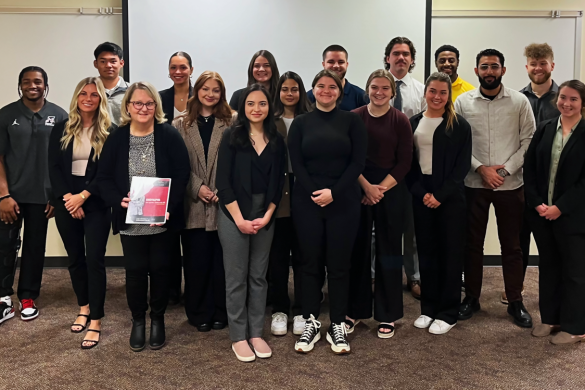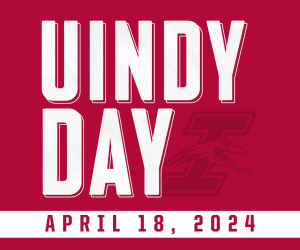The Very Important Persons Program hosted an addiction panel for Interprofessional Education Week on Oct. 1 to help and educate members of the University of Indianapolis about ways to get help with addiction and ways to help others. The VIP Program is a team that coordinates and schedules these events. The VIP Program invited five speakers for this panel including doctor Katie Kivisto, Fairbanks Researcher Tony Toomer, Indiana Opioid Treatment Program Manager doctor Eric Davis, Associate Adjunct Professor of Social Work Kimberly Sharp and Assistant Professor Psychological Sciences Jackie Maxwell.
Davis said that though addiction can be hard for the person suffering or the family, there is a way out.
“Addiction is not a death sentence. At least it doesn’t have to be,” Davis said.
These guest speakers devote a substantial amount of their time trying to educate others about addiction or try to help those who are addicted. According to Sharp, four out of five addicts started with prescription pills. Clinics and hospitals have started screening children at the age of twelve now, as the drug epidemic continues to get worse throughout the United States.
According to Toomer, the state has started an immunization campaign called “Know The O,” and aim for the public to understand is that addiction is a disease, there is treatment and recovery is possible.
According to Toomer, doctors and experts versed in addiction have noticed that around the age of 12 to 14, the number of traumatic events in a person’s life substantially increase. These doctors and experts have realized that children are trying drugs much younger now, because they seek help to cope and deal with traumatic events and stress. They know that willpower is not enough for most people to stop using drugs and they want to help. These speakers have seen first hand not only how addiction affects the addict, but also how it affects the families.
“The hardest part about an addicted loved one is losing someone even though they are still alive,” Davis said.
Kivisto said she was always interested in adolescent mental health and got involved in adolescent research as an undergraduate student. Years later, she said she found that she loved adolescent research and went on to study psychology in graduate school to study adolescent development. In graduate school, she focused more on studying adolescent mental health and addiction. Kivisto said she realized how a person’s difficulties as a teenager can affect them for the rest of their lives.
Assistant Professor of Psychological Sciences Jacqueline Hess got involved with this team because she wanted to help other learn about addictions. She said she hoped that the audience members attended the panels enjoyed the opportunity to get to hear and ask questions to members of society that they normally would not. She also hopes that this helps differentiate our understanding of pain management and addiction.
Graduate student Brittany Singh said she learned that 90 percent of addicted adolescents had a trauma that led to their addiction. She said the importance of the different professions spoke to her. Singh thought that the fact that these different professions were working together was a very important takeaway. Davis said that all of the different speakers brought a number of perspectives and values.
“At the end of the day we can’t do it [fight addiction] for them,” Davis said. “That’s that hard part.”
Toomer said the speakers have seen the bonds broken with loved ones, and they have seen those bonds put back together again.
“Whatever family is to them we help them get that back,” Toomer said.






